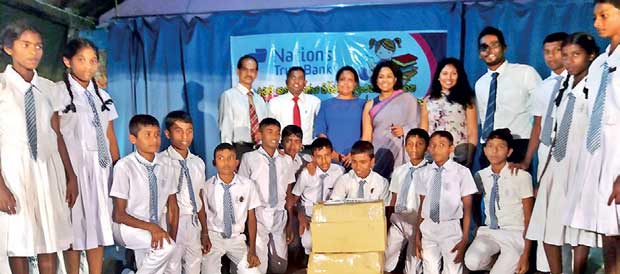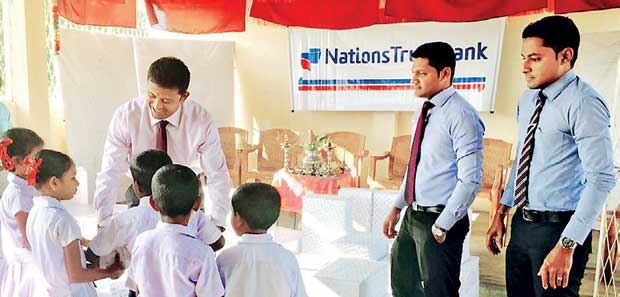Reply To:
Name - Reply Comment


Nations Trust Bank (NTB) understands that quality education is a key driver of sustainable development in Sri Lanka. In the late 2000s, the bank set up its Schools Empowerment Programme as a corporate social responsibility (CSR) initiative. Through the programme, the bank has sought to identify and establish long-term, supportive relationships with schools in remote areas that require urgent assistance.
Over the years, the bank has been committed to assisting four schools which are, in order of engagement, Galgamuwa Nithalawa Kanishta Vidyalaya, Ratnapura Amunuthenna Kanishta Vidyalaya, Anuradhapura/Wahalkada D-5 Vidyalaya and Mulaitivu Mullivaikkal East GTM School. The goal of the programme is to assist in the development of these schools so that they may become model schools in their respective regions.
As part of this ongoing programme, NTB constructed a brand-new, fully-equipped science laboratory, at a cost of over Rs.4 million to the Galgamuwa Nithalawa Kanishta Vidyalaya recently. The bank has also donated a year’s worth of stationery, school supplies, teaching aids and provisions, worth over Rs.1.8 million to the students of the schools that the bank assists.
Many parents of students in these schools are farmers and local craftspeople whose livelihoods have been adversely affected by the harsh weather and socio-economic conditions that these areas have recently experienced. In all, 413 students across the three schools have benefited from this donation. Discussing the programme, Deputy General Manager Legal and Administration/Company Secretary and Head of CSR Theja Silva said, “There is no greater gift than that of a good education and this is what motivated us to start this programme. We started small by donating books and moved on from there. Our efforts have yielded tangible results, which can be seen when you compare the pass rates of students at the Nithalawa school.
In 2009, when we started, GCE Ordinary Level pass rate was 28 percent and in 2015 it was 80 percent. Grade averages have also improved. A similar trend can be seen at the Ratnapura school as well. If you want to invest in the future, there are few better investments than the education of the future generation. Progress is learning and learning is progress and we’re grateful to have been able to contribute to this effort and are looking for ways in which we can do more.”